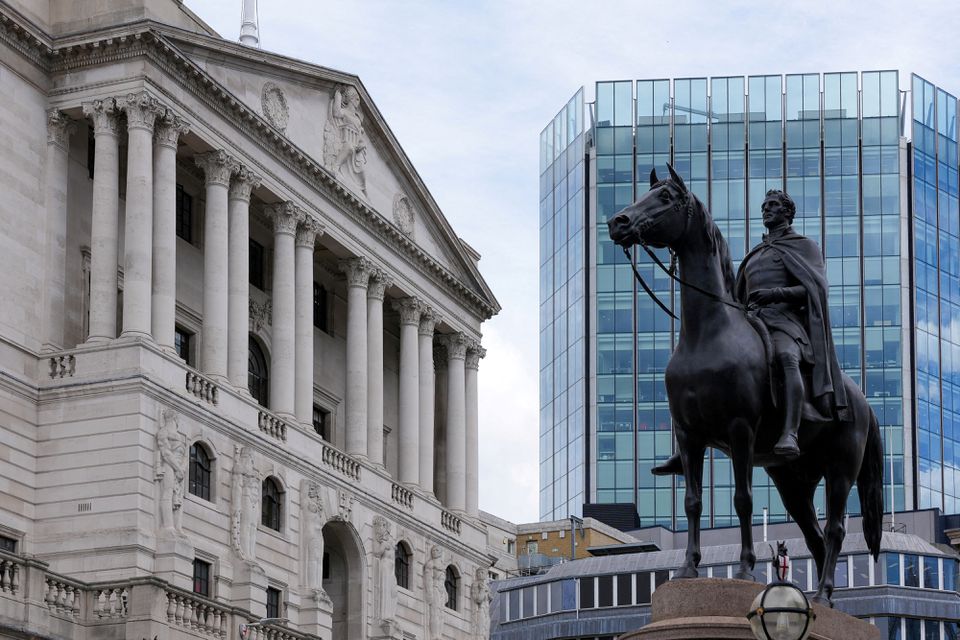The British economy will grow a mild 1 per cent this year with the Bank of England set to cut interest rates two more times in 2025, according to economists polled by Reuters, little changed from previous projections despite tariff uncertainty.
The survey was completed before finance minister Rachel Reeves’ planned comprehensive spending review on June 11, with the biggest increases expected to focus on health and defence.
Median expectations in the June 5-10 poll of 52 economists showed the economy growing 1.0 per cent this year – a view largely unchanged since February – and accelerating slightly next year to 1.2 per cent. That compares with a 1.1 per cent expansion in 2024.
Poll forecasts match the Office for Budget Responsibility’s latest projections.
The UK economy grew 0.7 per cent in the first quarter, topping expectations, but growth is expected to slow to 0.1 per cent this quarter and 0.2 per cent in the third quarter, followed by a 0.3 per cent rise in the final three months of 2025.
“Fundamentally we haven’t changed our growth forecast for 2025 for the past few months because tariffs won’t have a huge impact on the economy. The car industry, steel, pharmaceuticals are in the firing line but as a proportion of GDP, UK goods exports to the US are only about 2 per cent,” said James Smith, economist at ING.
Britain is the only major economy to have agreed a trade deal with the US, exempting it from President Donald Trump’s increased tariffs on steel and aluminium imports for now, but a 10 per cent goods levy remains in place.
The Bank of England is forecast to keep its Bank Rate on hold at 4.25 per cent next week, followed by a likely one quarter-point rate cut in August and another in the final three months of the year to 3.75 per cent, according to a large majority of the 59 economists polled.
Markets are also pricing in two further rate cuts this year after official data on Tuesday showed a slight rise in the jobless rate and a slowdown in wage inflation.
The central bank’s Monetary Policy Committee may be more confident now about sticking to its gradual easing path, economists said.
“Today’s weak jobs and slower pay growth may tip the balance in favour of an August cut,” noted Elizabeth Martins, senior UK economist at HSBC. “Certainly, market pricing for such an outcome has increased.”
Overall, inflation was expected to remain elevated at an average 3.4 per cent this quarter and 3.3 per cent the next, before easing below 3.0 per cent early next year, poll medians showed.






Click here to change your cookie preferences